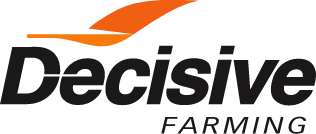View and track tank levels so you always know what you’ve got on-hand
Farm machinery has changed a lot since the first gas-powered tractor rolled into a prairie farm yard about a century ago. But some things resist change. Most farm machinery still runs on fuel and farmers still fret about running out of it.
Today, however, as with just about everything else, technology can help. The TELUS Farm Fuel Management solution, available through Decisive Farming by TELUS Agriculture, features wireless technology that can remotely monitor fuel storage tank levels and send an alert to a farmer or team member when supplies are getting low.
“You can even set up a monitor to automatically notify your supplier when your tank reaches a certain level,’’ says Jeff Poppel, Senior Product Manager at TELUS. “This additional support can give you peace of mind, knowing you’re not going to have to call your supplier in a panic.”
On today’s typical farm, fuel supply is measured by walking up to a storage tank and either viewing a gauge or using a dipstick to determine the level. More often than not, records are taken and usage estimates generated using a pen, paper and a calculator.
Fuel management systems allow the farmer to choose a threshold that triggers an alert or a notification to the supplier – it might be 30, 40 or 50 per cent of tank capacity, for example. However, the user can monitor fuel levels anytime using the cloud-based platform accessible by computer or mobile device application that can be used anywhere with cellular service. Information is stored automatically and the owner can set permissions giving designated team members access to data, which is protected by established security safeguards.
The TELUS Farm Fuel Management solution is an out-of-the-box, easy-to-set-up solution for monitoring and managing gas, diesel and propane use. Poppel says it can be adapted for use with liquid fertilizer, as well. It’s powered by a Smart Dock device and accompanying software, co-developed by TELUS’ partner North Star Systems Inc., of Saskatoon. This device, which is charged by both battery and solar panel, can operate using a range of wireless protocols and is built to handle the extreme climate of the Canadian prairies.
Farm fuel management systems can do much more than save time and send alerts, as valuable as those benefits are. Regular monitoring of fuel levels can help reduce downtime and improve efficiency by ensuring deliveries are scheduled before supplies run out. Tracking fuel use over time can reveal trends that could help an operator make stronger business decisions in the future – decisions that can help save money.
“You might look at the data and see that you expect to burn more fuel during a particularly critical period of time. In that case, it might make sense to increase your allowable storage capacity and pre-buy direct from the distributor or refinery at a discounted price,’’ says Poppel.
By monitoring fuel usage and identifying inefficiencies, farmers can help reduce waste and optimize fuel usage, which can result in additional cost savings over time. Moreover, by optimizing fuel usage and reducing waste, a fuel management system can help lessen the environmental impact of an operation and assist in meeting regulatory requirements through the maintenance of accurate fuel usage and storage records.
A fuel management system can also increase accountability on the farm. Monitoring the fuel use of equipment and employees can reveal data that can alert the owner that something may be amiss. It can also protect against costly downtime by generating data that can help predict when to refill the fuel supply.
Poppel says the TELUS Farm Fuel Management solution represents the beginning of digitized inventory management.
“We’ve seen this evolve with grain assets on the farm and I think we’ll continue to see that with more consumable products as well,’’ he says. The Smart Dock device can be scaled up to manage data generated from a multitude of sensors for all kinds of consumables stored in the farmyard, he adds.
For the time being, Poppel’s focus is on a farm fuel management product that can help streamline fuel-handling processes, aid in the reduction of logistics costs and increase accountability.
“Fuel management is something we believe can be automated to make the entire process largely out of sight and out of mind. You’re improving efficiencies and logistics. It just makes sense.’’
For more information on TELUS Farm Fuel Management, visit www.decisivefarming.com/fuel


